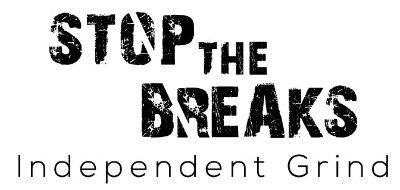
Child Support is a payment from one parent to another for the care and maintenance of their minor children. The amount of child support varies depending on the number of children involved and each case’s circumstances.
Child support is a financial obligation between parents who share custody of their children. There are two types of child support payments: spousal support and child support. Spousal support is paid by the noncustodial parent to the custodial parent. In contrast, child support is paid directly to the child or the state.
The purpose of child support is to provide adequate sustenance for children whose parents cannot afford to raise them. Child support can be awarded as part of an equitable distribution of marital property or as a separate award based on need. Child support is based on the child’s needs, not the parents’ income.
Child support is critical to both parents as well as to children. It helps them financially. To get child support, you need to file a case in court. It would help if you also were represented by Attorneys For Child And Spousal Support, who can answer any questions that may arise during the process. A lawyer can help you understand the law and how it affects your situation.
Let’s explore the type of questions you should be ready to answer in court:
– Child’s Needs
Children need clothes, food, and education. Parents should be prepared for the court hearing with exact and verified answers to the child’s needs. A child’s needs include special medical care. Parents should plan for this expense. Here are some common questions recommended by the Respected Family Law Firm, which the court may ask the parents:
- What is the expense of a child’s education, clothing, and food?
- What is the age of your child?
- What is the average medical expense of your child?
- Does your child belong to the special need category? If yes, how does it affect your expenses?
- Is there any babysitter you appointed for a baby? If yes, how much does it cost you?
– Income and Assets
Parents should be honest when answering questions about their income and assets. Lying or providing inaccurate information could lead to penalties.
Child support is calculated according to the parents’ earnings potential. A parent who works on lesser pay for the same job available at higher pay is considered voluntarily working for a lower wage. It means that the parent is choosing to work at a lower-paying job. Therefore, the court considers this hardship as voluntary.
There are some exceptions to this rule, and a skilled child support attorney may argue that the higher paid job poses serious health risks to the parent and will impact their ability to pay child support in the future.
– Parents’ Expenses
Parents should be responsible for supporting their children. A parent who does not pay sufficient child support may lose custody of the child. Child support is based on income and needs. In addition, parents must prove that they can provide adequate health care for their children.
Based on your answers, the court will provide a suitable solution for the child’s wellness.
– Level of Communication among the couple
Judges prefer to give custody to both parents because they feel that the child should be raised by both parents equally. For this, communication between the two parents is essential. The judge inquires about the level of communication to ensure if the child can be raised by both the parents. The court focuses on the fact that both parents play an active role in raising the children.
It would help if you found out how to communicate with your ex-spouse to mention the decisions affecting your child’s everyday life.
– Existing Arrangements between the couple
The court will ask you about current custody arrangements. You should be clear about what isn’t working. If you have some custody arrangements that are working fine, the court will not interfere. In case no such arrangements are made, the court prefers joint custody of the child(ren) for the benefit of the child and parents.
Joint custody is considered better for the overall development of the child. It facilitates the child to maintain communication with both parents.
Using Child Support for Personal Matters
Child support is meant to help children, but if a parent uses it for personal benefits, the court may take away custody or visitation rights. Recalculating child support is an option when the parents’ incomes change.
What Else Should You Know About Child Support?
Child support is an important aspect. Some parents don’t know how much money they owe per month. It is why they need help.
– How to Collect Child Support?
Parents can pay child support by sending money directly to the child via a bank account, direct deposit, or electronic card. Child support payments may be sent to child welfare agencies from the parents’ employers. These payments are then transferred to the noncustodial parent.
– Can You Modify the Amount of Child Support?
Parents must provide evidence that their children are growing up and require more money for school and other things. It may include proof of increased tuition costs or additional expenses for extracurricular activities. If they are justified by the modification required in the amount of child support, the court allows that.
– Does Child Support End When the Child Turns 18?
Child support ends when a child reaches 18 years old if a court determines that a child is no longer under the custodial parent’s control. On the other hand, child support payments may continue if the child is financially dependent on the parents.
– What do we mean by “Past-Due Support”?
If the paying parent skips the child support payment for a specific month(s), the court keeps track of missed payments. It gets accumulated over time, and the parent is still liable to pay it. In case there is an excessive accumulation of ‘Past Due Support,’ it may lead to legal action as directed by the court,
Conclusion
When considering the child support issues, the court will only consider the child’s best interest and not just one side’s argument. In the spouse’s best interest, it is to present a clear picture of their finances and liabilities to the court. In case of any discrepancies, the court is entitled to legal action. Preparing the questions that the court may generally ask helps you to avoid these situations.



